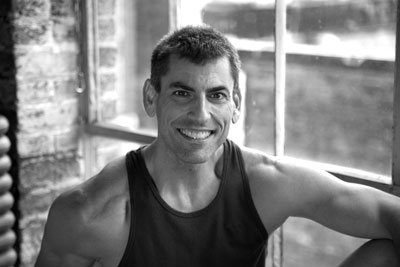
WEI CHI

By Jeff Horowitz
May 2012
When written in Chinese the word "crisis" is composed of two characters: 危機
One represents danger, and the other represents opportunity.
I don't actually know if this translation is accurate; I've read conflicting online reports. No matter. I love wei chi.
The concept of wei chi, as I've come to understand it, is more important to me than the actual word. It represents a way of looking at challenges and setbacks in a positive way.
For a runner, wei chi represents a way to look at injuries. Several of my friends are currently dealing with injuries. Some of these injuries are directly related to running, though not all of them are; one of them is due to a freak accident. What they all share in common, however, is that these injuries have forced my friends into an unwanted layoff from running. All of them have made it very clear that they are very displeased with these turn of events. But they are also all ready to figure out how to make the best of the situation - how to find opportunity from the chaos of their running.
I'm reminded now of the boxer Larry Holmes. I was a big fight fan back in the late 70s to mid '80s, and I remember reading about this young fighter when he was just starting out. He was a big heavyweight with speed and a good right hand. At one time he worked as a sparring partner for Muhammad Ali, but he didn't seem to be skilled enough to break into the very top of the elite ranks.
Then he injured his right hand. When a right-handed boxer injures his right hand, sending him into the ring is a lot like sending a soldier into the field with nothing but the clothes on his back. Still, Holmes kept going into the gym while he was healing, spending all his time working on his left jab. Ultimately, he honed that jab into a lethal weapon, and it took him all the way to the heavyweight championship of the world.
Wei Chi.
For a runner, wei chi can be hard to understand. Only a real runner knows the level of desperation that can set in when an injury forces us to stop running completely. All the usual stages of loss are followed, from denial (“this pain will go away soon”), through anger (“just one month before my big race! Un-freaking-believable!”), and bargaining (“I’ll ice and take ibuprofen, and I’ll even stretch. Honest.”) I know that I’m not the only runner who swore to do whatever it would take to be able to run again; if an orthopedist told me that I needed to slathered my legs in peanut butter to heal, I would have bought up cases of Skippy’s and rolled up my pants. But eventually, the final stage kicks in - acceptance (“OK, I can’t run”). And often, this is where depression also enters the scene.
It doesn’t have to be this way. Any forced layoff presents the opportunity to work on turning strengths into weaknesses, just as Larry Holmes had done. For runners, this usually means improving core strength, getting in the habit of cross-training, working on flexibility, and improving form. Not only would this help avoid depression by shifting the focus of the forced lay-off from running, but it would also set the stage for better running once the injury is healed.
But the real challenge of adopting wei chi is to make the change permanent. Just as most runners swear to do whatever it takes to get healthy once they’re hurt, most runners also conveniently forget that promise when they’re healthy again. Stretching and strength training become something to fit into the schedule only when possible, and eventually fall off the schedule entirely. All too often, that’s when the injury reappears. This should come as no surprise to anyone who is paying attention; after all, as Albert Einstein is supposed to have said, one definition of insanity is to do the same thing over and over again while expecting a different result each time.
The real lesson of wei chi, then, is not just in making the most of the opportunity; it’s about making that change permanent in order to pave the way for lasting improvement. Accomplish that, and you’ll truly be running on the right path.
Marathon Training
PVTC Track Series
Mary's Custom Quilts
Seashore Striders Summer 2001 Schedule
Joints In Motion
Team Diabetes
Fredericksburg Grand Prix
TrackCoach.com
Running Enclave
DC Fit
Fleet Feet - DC
Fleet Feet - VA&MD